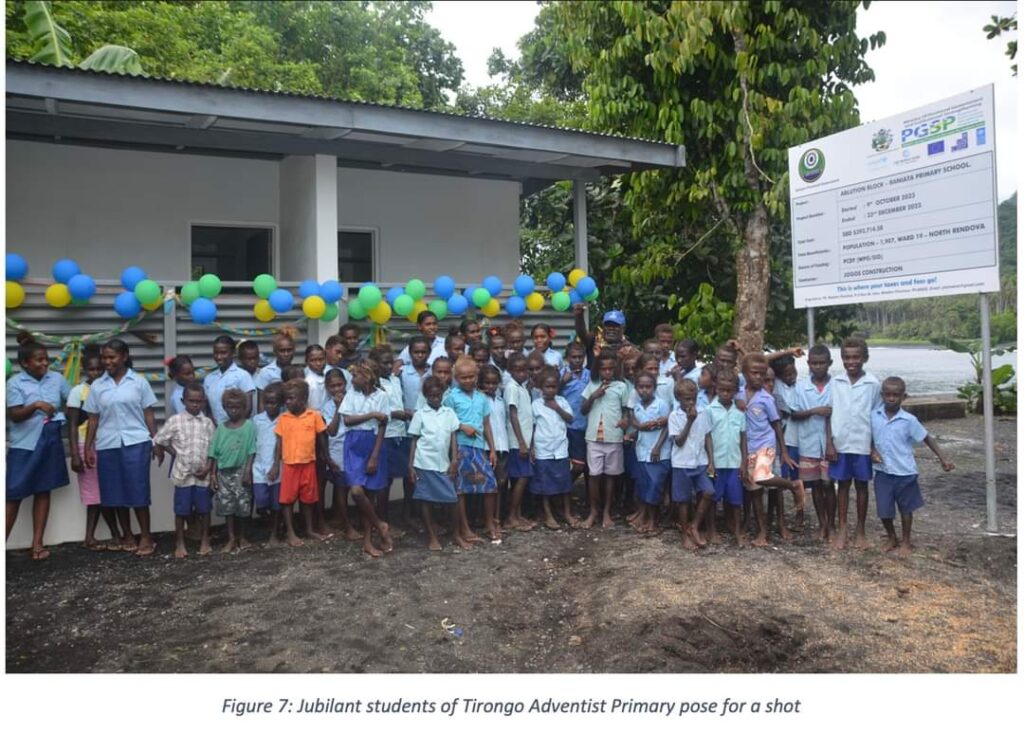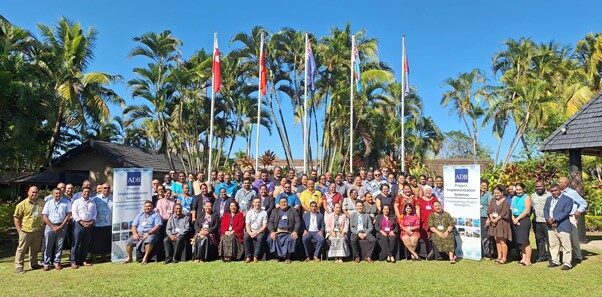In a significant step towards empowering local communities, the Western Provincial Government officially handed over two community projects on Thursday, 7th November, to the people of the Mbaniata area in Ward 19, NorthRendova Island. These projects, funded by the Provincial Capacity Development Fund (PCDF) through the Western Provincial Government, include a Kava Solar Dryer for the Judea community and a much-needed ablution block for the Tirongo Adventist Primary School.
At the handover ceremony of the Kava Solar Dryer, Western Provincial Government’s Minister of Planning, Hon. Alesina Redfern, urged residents of Judaea community to take good care of their Kava Solar Dryer. “To truly optimise the benefit from this solar dryer, the community must take good care of it,” emphasized Hon. Redfern.
James Mamarodo, a local kava farmer and community leader from Judaea, expressed his gratitude, noting that the new dryer will improve their kava processing by reducing drying time and improving crop quality. “This new kava dryer encourages us to expand our kava farming, and it represents an investment in the economic strength of our community, he said.”
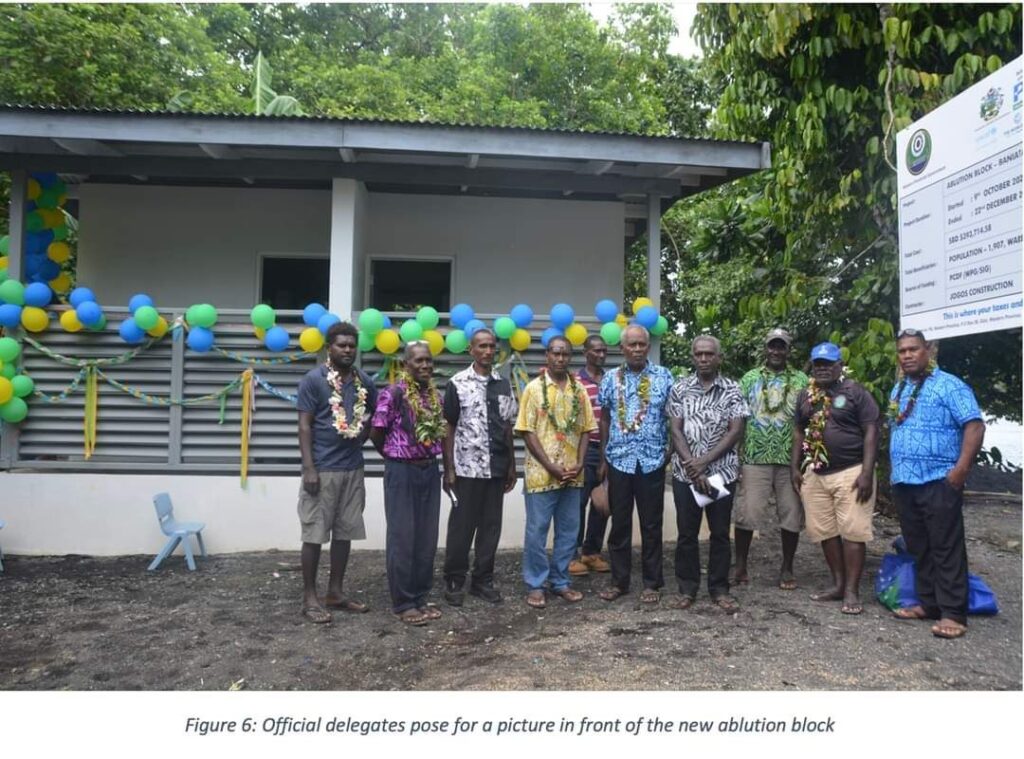
As the leading copra producer in the Western Province, such development in the agriculture sector motivated the local Kava farmers in the Mbaniata area to also increase their production of kava. Silawa Building Constructions built the Kava Solar Dryer, valued at SBD55,908.60.
Earlier in the year, Jogos Construction completed the construction of another project in a form of a new a new ablution block for Tirongo Adventist Primary School, which cost SBD393,714.58. The new facility now offers a safe and hygienic learning environment, ensuring that students can focus on learning in a clean space.
During the handover ceremony of the sanitation facility, the Western Provincial Government’s Minister of Educationand the Provincial Member for Ward 19, Hon. Gordon Zebo, expressed his appreciation for the project. “A clean and safe learning environment is crucial for our students,” he stated, thanking the landowners for making space available for such development and the provincial government’s Planning Division for its efforts. He urged the school community to maintain the new sanitation facility to ensure that it serves the students for many years. “We’ve handed over the keys of the ablution block to you; it is now your responsibility to use it properly and look after it well,” Hon. Zebo said.
At the official handover ceremony, Tirongo Adventist Primary School’s representative, Sheffler Haron, emphasized theimportance of the new ablution block. “It is not enough to only provide our young learners with textbooks and classroom resources; we must also ensure that they have access to essential facilities that promote their dignity and hygiene,” Haron stated. He explained that, for too long, the lack of adequate sanitation facilities at the school hadcreated significant challenges for students, affecting their health and overall school experience.
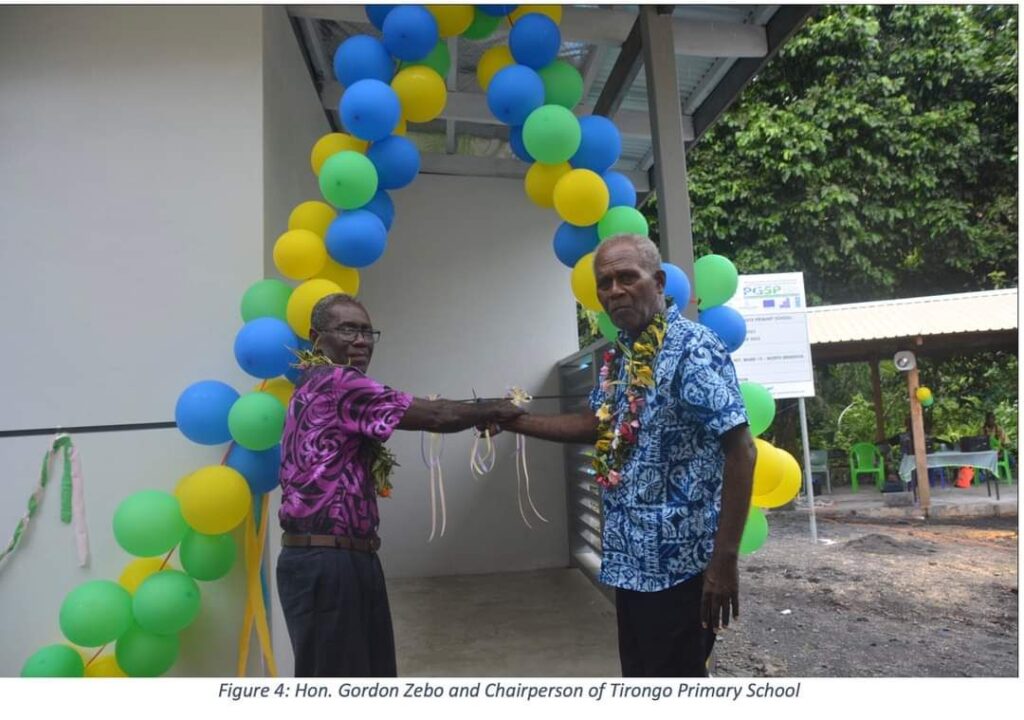
Mr. Haron highlighted that the absence of proper facilities had contributed to poor attendance, reduced participation,and health issues among students. In his closing remarks, he expressed his gratitude to the Provincial Government, thelocal building contractors, and his community for their collaborative efforts in completing the project. Echoing these sentiments, the Chairman of Tirongo Community thanked both the national and the provincial government for supporting his community. “Our community has contributed a lot to the country’s economy through our copra production, therefore, it’s encouraging to see the government giving back to us,” he said.
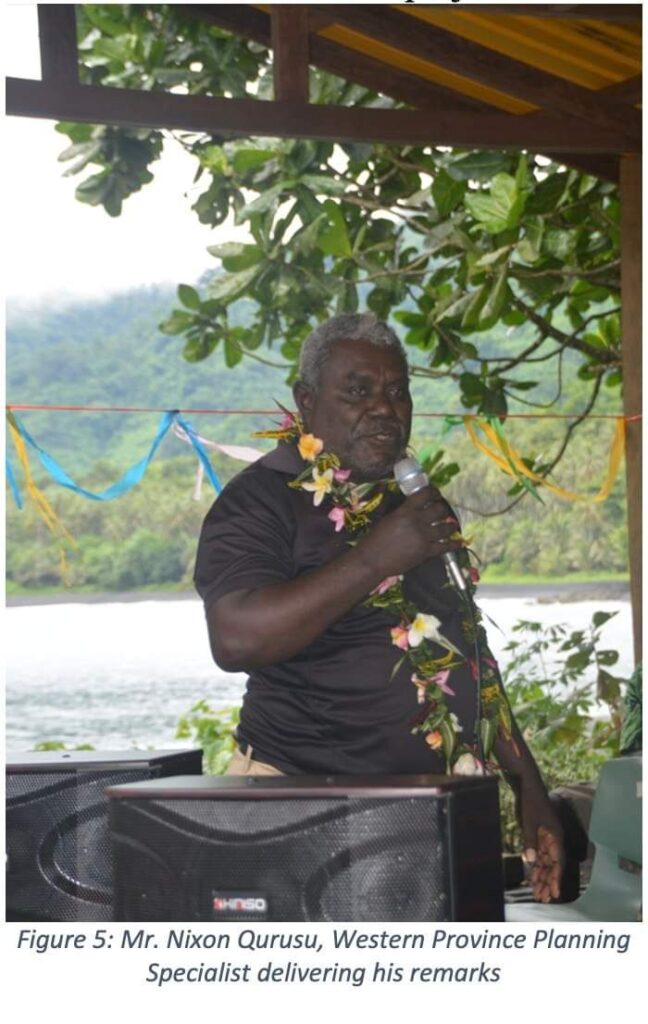
During the launch of two PCDF projects, Nixon Qurusu, representing the Planning Division of the Western Provincial Government, emphasized that Ward 19 in Mbaniata is fortunate to have received two PCDF projects in a single financial cycle—something the communityshould appreciate and take good stewardship of.
He highlighted that these projects were successfully completed thanks to the teamwork of the planning division, the local community, the local building contractors, and all involved stakeholders. Because of the costs associated with implementing projects in remote, distant areas like Mbaniata, Qurusu encouraged the community to take good care of these projects so that everyone can benefit from them for years to come.
These two projects reflect the provincial government’s commitment to supporting local communities, promoting agricultural growth, and ensuring a safe learning environment for students in remote, isolated areas.
END///

